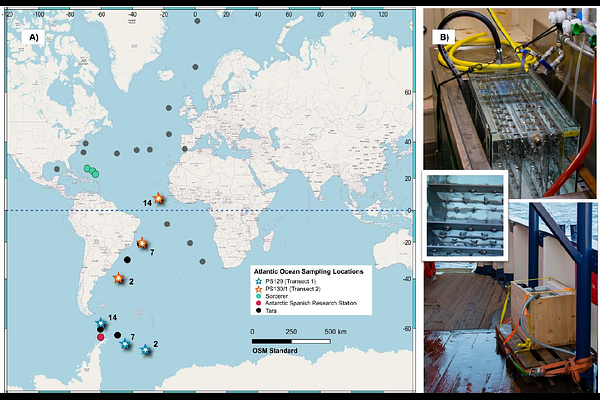Microbial Colonisation of Polyethylene in Offshore Marine Environments: Insights from the Southern and South Atlantic Oceans.

Microbial Colonisation of Polyethylene in Offshore Marine Environments: Insights from the Southern and South Atlantic Oceans.
Carrillo Barragan, P.; Erni Cassola, G.; Burkhardt-Holm, P.
AbstractPlastic debris is a pervasive environmental pollutant with polyethylene (PE) among the most abundant floating polymers in marine environments. While microbial colonisation of marine plastics has been extensively documented, studies predominantly focus on Northern Hemisphere coastal waters, leaving microbial dynamics in remote Southern Hemisphere oceanic regions poorly characterised. In this study, we employed ribosomal amplicon sequencing and shotgun metagenomics to characterise microbial colonisation patterns on PE films deployed during two oceanographic transects across the Southern Ocean and South Atlantic Ocean over 14 days of incubation. We evaluated environmental factors including geographic location, incubation regime (indoor/outdoor), and exposure conditions (UV radiation, temperature, and salinity) as potential drivers shaping microbial communities. Our results demonstrate clear differentiation in microbial community structure driven primarily by transect location and environmental conditions, rather than material type. Dominant taxa identified included Pseudomonadota known for hydrocarbon degrading capabilities and Cyanobacteria associated with phototrophic traits. Metagenomic analyses revealed enrichment of functional pathways linked to biofilm formation, hydrocarbon degradation, and iron metabolism. This study expands the current understanding of microbial colonisation processes on marine plastics, highlighting environmental factors influencing early plastisphere community structure and functional potential in understudied oceanic regions.